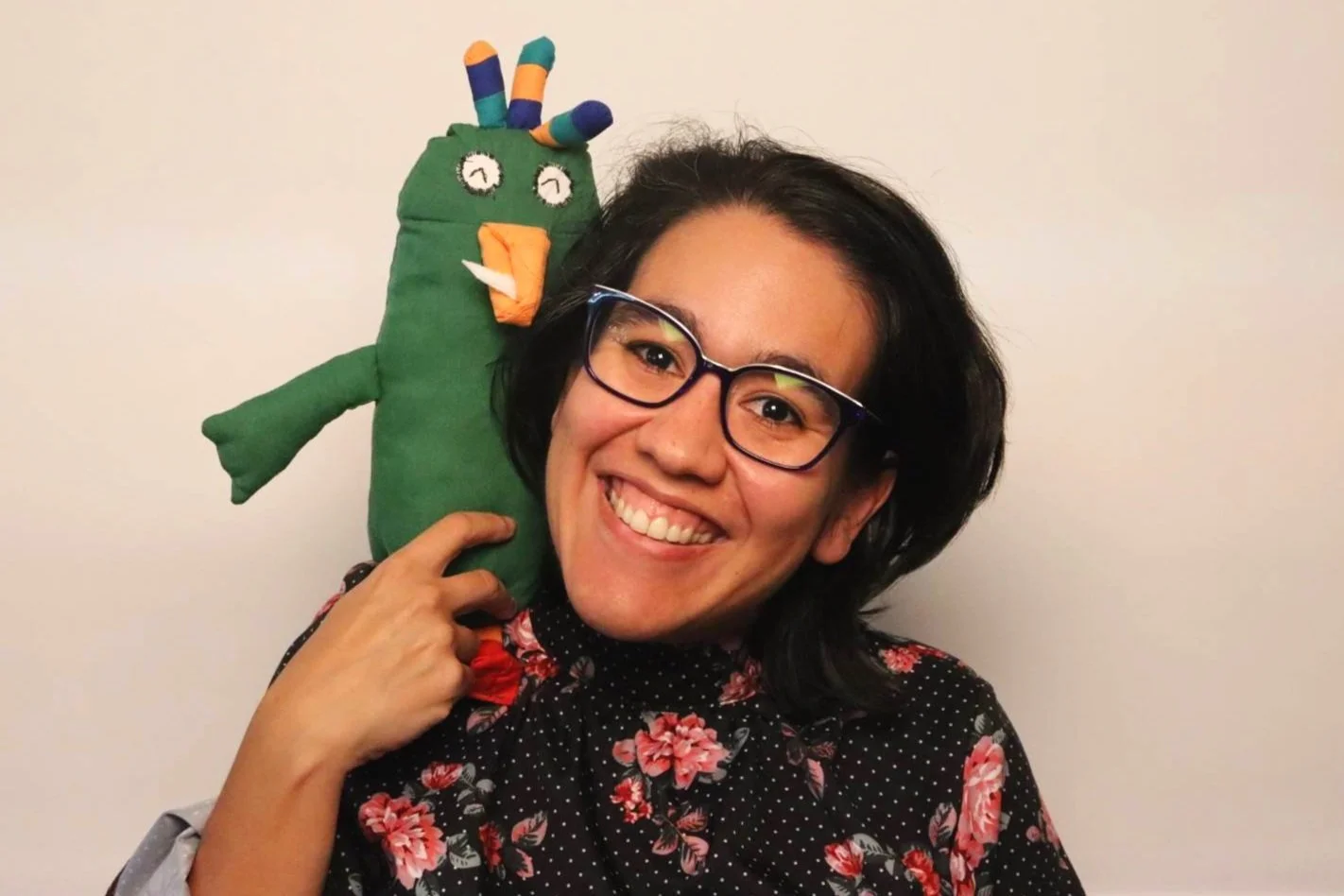Viltu business? Stories from local entrepreneurs
Helen Cova, is a Venezuelan author living in Westfjords, member of Ós Pressan writing collevtive and founder of Karíba Útgáfa. Photograph: Sigurður Grétar JökulssonBLÁBANKINN (The Blue Bank) is a non-profit organization, community centre, and an international platform for entrepreneurship and innovation located in Þingeyri in Westfjords. Blábankinn hosts the annual Startup Westfjords and offers various events and workplaces that support local and foreign entrepreneurs.
SUPPORT FOR PUBLISHERS Every year, the Icelandic Literature Center supports local publishers by providing reimbursement of costs incurred in the publication of books in Icelandic. You will find more information about the fund and the applicable costs here.
Karíba
From writing a book to establishing a publishing house, writer Helen Cova describes her experience with self-publishing and building a literary bridge between Iceland and South America.
Helen Cova grew up in the city of Caracas in Venezuela, where the population reaches almost three million. After years of travelling, Helen made the decision to settle in the Westfjords, a sparsely populated region—even by Icelandic standards.
“It was completely new and surprising, that darkness. I haven’t experienced anything like it before,” says Helen. “I thought, I would be left alone in this remote place, but I found a beautiful community.”
Although Helen lived for several years in Kópavogur and Reykjavík, she first arrived in the Westfjords in 2020 for an artist's residency at Blábankinn in Þingeyri. During three dark winter months, she wrote her second book, Autosarcophagy - To eat oneself, a collection of short stories dancing between surrealism and magic realism.
Immediately after the art residency, Helen convinced her husband Sigurður to move north. Living in the Westfjords - a six-hour drive from Reykjavík - didn’t interrupt Helen’s presence on the Icelandic literary scene. Quite the opposite, Helen believes the distance and the remoteness helped her focus on her work.
“Life is calmer in the Westfjords. There is lots of empty space, and I would say it’s not only physical space but also mental space which I find necessary for creativity.”
Helen and Sigurður decided first to live in Þingeyri, and in 2022 they moved to Flateyri. Photograph: Sigurður Grétar JökulssonAn independent spirit and DIY creator at heart, Helen decided to self-publish all of her three books following a different approach with each of the publications. Her first book, a children’s story presenting the benefits of spending time alone, Snulli likes being alone, was self-published in a collaboration with Bjartsýn publishing house. Helen illustrated the book together with her 9-year-old friend Davíð Stefánsson. She worked through the next steps with a translator and a graphic designer before ordering the print in Latvia through Prentmiðlun. Snulli likes being alone was published in three languages: English, Icelandic and Spanish. Helen promoted it and navigated the bookselling channels by herself.
Helen’s second book, the collection of short stories Autosarcophagy - To eat oneself, was self-published in 2020 in collaboration with Ós Pressan, a multilingual writing collective where Helen acts as head of the board since 2018. It was during her first visit to Þingeyri that Helen met Rubén Chumillas, a graphic designer from Spain. Together, they prepared her book for printing. For Autosarcophagy, Helen hired an editor and an Icelandic translator. The book was published in English and Icelandic. Helen decided to print Autosarcophagy in Iceland at Litróf ehf, even if the local prices can be four times higher. “It was out of principle. I would like to be able to order services within the Icelandic economy, as much as possible.”
Helen’s third publication is a sequel to the children’s story about the friendly monster Snulli, titled Snulli learns to say no. The book was written and illustrated by the author and published in three languages. The publication marks the launch of Karíba Útgáfa, a new publishing house, dedicated to promoting South American authors and the classics of the Latin American literary canon.
“Snuli learns to say no” marks the launch of Karíba Útgafa a new publishing house created by Helen Cova together with your husband Sigurður Grétar Jökulsson.“Karíbar is an Icelandic word for the Caribs, an indigenous tribe of South America,” explains Helen. “When the Spaniards arrived in the New World, the Caribs were the most common population of the north of Colombia, the majority of Venezuela, and some of the Lesser Antilles. I have indigenes roots. I think it’s a beautiful symbol for the native South American literature and for the bridge with Iceland, that we are trying to build.”
“I want to promote literature that is close to my heart, the books that I love, and I was raised on. Also, with each of my books I have grown to become a publisher myself,” says Helen who enjoyed the self-publishing process. “I’m an independent spirit and a maker, so I shine the brightest when working on my own.”
At the moment Helen is writing and developing Karíba Útgáfa while working on a full-time contract in Ísafjörður. “I’m using any pocket of free time I have. Relying on income as an author would be financially precarious, so setting up a small, yet stable business within the literature industry will hopefully allow me to work full-time in the field I love.”
Helen plans to collaborate with the Reykjavík Unesco City of Literature and the Icelandic Literature Centre, as well as apply for translation and cultural grants to support her publishing house.
“There are many opportunities there, but I also learned to be very careful. To a foreigner, even when speaking Icelandic, many nuances of the Icelandic tax system can be tricky.”
You can find more about Helen’s work on her website
and the website of Karíba publishing house.


